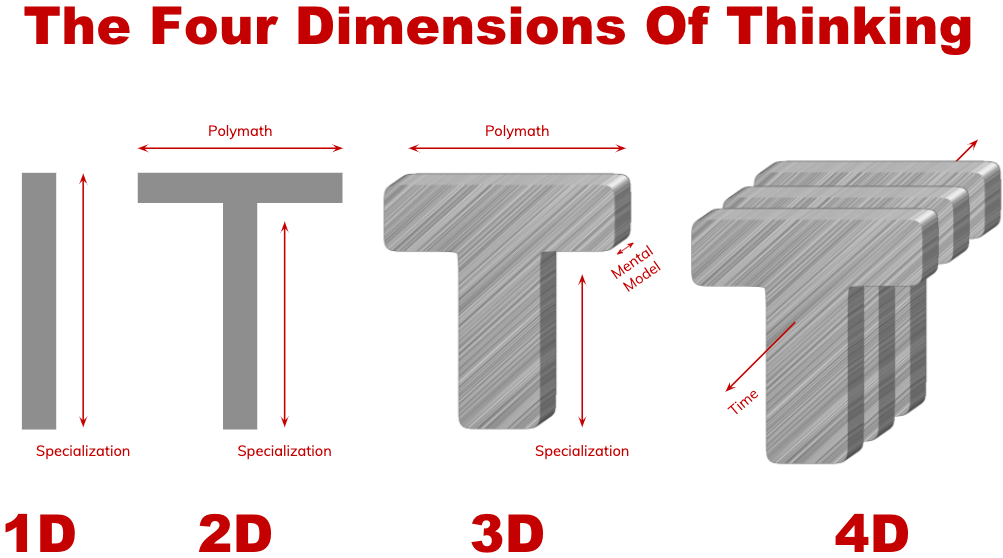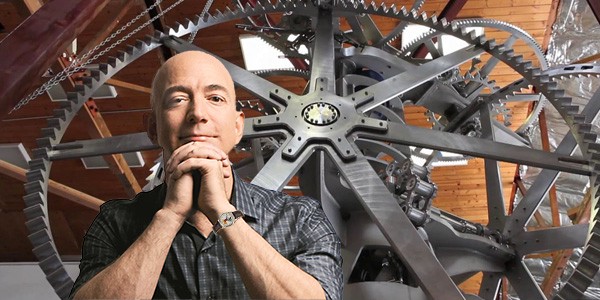Long-term thinking is the Archimedes lever leveraging success and influence
Shenzhen Translation Bureau is its compilation team, focusing on the fields of technology, business, workplace, life, etc., focusing on introducing new technologies, new ideas, and new trends abroad.
Editor ’s note: Bezos, Musk, Buffett … Where do these particularly successful people succeed? Michael Simmons, who specializes in learning, summarizes the most important point. When most of us look at the problem with a one-dimensional perspective, they look at it with a four-dimensional perspective. One of the least understood dimensions is time. The time frame for these people to examine the problem is very wide, spanning hundreds of years from history to the future. It is precisely because of this long-term thinking that they can jump out of thinking about quick success and focus on long-term success. The original article was published on Medium with the title: Bezos, Musk, & Buffett See The World Differently, Because They See Time Differently. The length of the relationship, we publish it in two parts, this is the first half

Look long-term
“The greatest CEOs we have studied, they have managed the business for a quarter of a century.”
—— Jim Collins (Jim Collins)
In the past 5 years, I have spent hundreds of hours researching and writing about Jeff Bezos, Bill Gates, Warren Buffett ), Ray Dalio (Ray Dalio) and Elon Musk (Elon Musk) and other self-made articles of billionaire entrepreneurs. The decades of resumes created by these innovators are unmatched in history. They have donated tens of billionsThe US dollar helps create products that change the world. In other words, without these people, our planet would be very different now.
They have some common patterns, one of the most surprising is that when most people look at things with one-dimensional vision, they look at it with four-dimensional vision:

4D thinking
Dimension 1: Focus on one area (specialization)
Dimension 2: Interdisciplinary learning, suitable for a major (generalist)
Dimension 3: Vertical thinking from skill to principle (thinking mode)
Dimension 4: The vision spans hundreds of years, from the past to the future (time)
In the previous article, I have written about the first three dimensions. This is my first article about the fourth dimension. This may also be the least understood of these four dimensions …
The power of long-term thinking
Almost all CEOs of listed companies (not to mention ordinary people) have to plan ahead a few days, weeks or even months, but in contrast, these visionary people think about the coming decades Even centuries of things. They are not just planning: they must do what they say. They bet boldly, don’t care that it is impossible to get a return in a short time, and the possibility of failure is still high.
Actually, what I want to say is that these long-term thinkers have redefined the meaning of long-term vision .
When I first made this surprising discovery, I thought of it as a quirk. However, as I studied more and more of the world’s top entrepreneurs, especially after careful research on Bezos, my views began to slowly change.
I began to wonder whether all of us should adopt the generally powerful basic strategy of long-term thinking in life and business.
After reading this article, you will feel the same …
BeiThe unique method of Thors ’long-term thinking
Let ’s take a look at what Bezos said in the interview, which is very surprising:
I believe that in terms of the largest time frame (in fact, I am considering a time frame of hundreds of years), I am increasingly convinced that the space company Blue Origin will be my most important job.
This statement is particularly appealing in two ways:
Most people have not even heard of Blue Origin.
Amazon is one of the largest companies in the world.
What can Bezos see that we cannot see?
When explaining why his space company will be more important than Amazon in the future, Bezos said …
The reason why I pursue [Blue Origin] is because if we do n’t do this, our civilization will eventually stand still. I find this too frustrating. I do n’t want my great-grandchildren ’s great-grandchildren to live in a stagnant civilization.
According to Bezos, the reason for the stagnation of civilization is the upcoming energy crisis.
If you use the current global energy consumption as a benchmark and calculate the energy consumption in hundreds of years by a few percentage points, you will find that the entire planet needs to be covered by solar panels to meet the demand. This is the real energy crisis. And it will come soon. Soon, I mean only a few hundred years. So, we do n’t have much time.
What surprised me is the word “soon”, soon means hundreds of years . For most people, it quickly means a few days. But on the time scale of Bezos’ thinking, hundreds of years are just a moment in the universe. Finally, Bezos also explained the role his space company Blue Origin will play in the overall solution:
Now, imagine another situation, moving out and entering the solar system. The solar system can easily support a trillion people. If we had a trillion population, we would have a thousand Einsteins and a thousand Mozart. And the inexhaustible solar energy resources.
Once you finish reading these words, you will realize that Bezos is completely from a different paradigm.
And these words just touched the surface …
Bezos believes that although Amazon has been in existence for 30 years, it is only just starting. He called this way of thinking “ First Day Philosophy ” and integrated it into Amazon’s cultural blood.
Bezos ’willingness to repeatedly smash billions of dollars in the past may fail, and it takes seven years to get a reward in a bold experiment.
Bezos ’s daily focus is on the future in three years . The focus of most CEOs is on being a firefighter, dealing with shareholders every quarter, and working hard to achieve quarterly earnings. In an interview with Forbes, Bezos gave a fascinating explanation of how he did things very differently. “After the quarterly report, my friends congratulated me and said,” Good job, a good quarter. “I would say,” Thank you, but that was the foundation I laid three years ago. ’Now I ’m working on a quarter of 2021 … I ’ll study the next two or three years, and most of my leadership team plans this way. “
Bezos invested tens of millions of dollars in a million years. In describing his charitable investment, Bezos explained why he thinks it is important to establish a symbol for a long-term time frame: “If [humans] learn to think for a long time, we can achieve things that were not possible … The technical means of human beings have become more and more complicated, which may cause great danger to humans. In my opinion, as a species, we must start to think about longer-term things. “ >

Bezos stands in front of the first mouthpiece
Why did Jeff Bezos do all these weird things:
To a 26-year-old company that this is itAll play a certain role, but looking at the long-term is the basis of these habits.
If you look long-term, then:
The benefits of delayed gratification become obvious. You are not sacrificing the short-term for an uncertain future, but a much worse investment for a much better future. Taking one day as a unit, freeing up a little “pause” time to reflect, exercise, learn, rest, build relationships, and do experiments, these are distractions. But if we use life as a cycle to measure, those are the best investments we can make.
Doing things that are extremely meaningful to you is absolutely crucial. You can be bored or unable to motivate your work, marriage, project or company in a short period of time, but you can’t persist for a long time. Long-term goals and passion are closely linked. This goal can help you work harder, learn more (deliberate practice), create more (efficient output), be more spiritual, and be willing to overcome challenges (toughness).
Not only will you and your business be affected, but your relationships will also be affected. Think about what your most “successful” relationship is. It is very likely that such a relationship has evolved over a long period of time, and it is one that is continuously given without expecting any return. Looking at the long term is a prerequisite for defining a healthy and useful relationship in almost any field.
Translator: boxi.